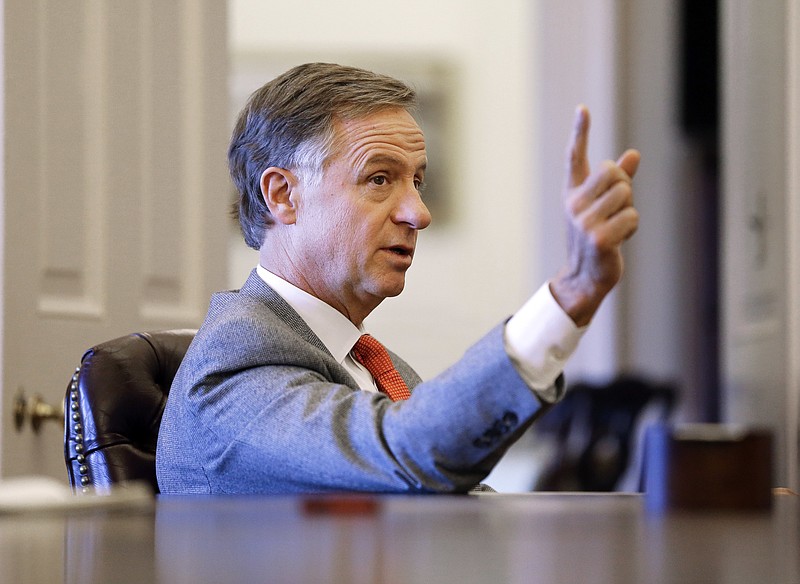NASHVILLE - A state senator on Tuesday questioned fellow Republican Gov. Bill Haslam's proposal to earmark $30 million for an undisclosed economic development project in Tennessee.
Sen. Bill Ketron of Murfreesboro cited state money spent on problematic economic development deals, including a shuttered polysilicon plant in Clarksville, a West Tennessee solar farm that still isn't operational, and a facility to study converting switchgrass to fuel that has been moved to Iowa.
"We continue year after year, and even going back to the prior administration, laying out large chunks of money for what we think might occur," Ketron said. "And they don't seem to materialize."
State Finance Commissioner Larry Martin declined to elaborate on the development prospect other than to describe it as an "exciting project" during a Senate Finance Committee meeting.
Ketron said he was uncomfortable voting for the new project on the basis of state officials saying, "Trust me, it's going to be good."
Martin said the Haslam is "not yet prepared to disclose who this is, but I can tell you that it has a very good payback and a strong return on investment."
"This one they feel very confident about," he said.
The state routinely makes offers - and the Legislature rarely rejects - grants to companies that build new facilities or grow existing ones in Tennessee. Recent incentive money has gone to big projects like the new Hankook Tire plant in Clarksville and expansions of the Nissan plant in Smyrna or Volkswagen in Chattanooga.
Clint Brewer, a spokesman for the state Department of Economic and Community Development, noted that Tennessee has had a "claw-back provision" on the books since 2012 that allows the state to recoup incentive money if companies don't fulfil their investment or hiring promises.
"This administration has used capital project grants in previous budgets to allow the state to compete for high-profile economic development projects," Brewer said in an email.
State and local governments have poured nearly $900 million into the VW project since the company announced it would locate its lone U.S. plant there in 2008. Tennessee's incentive package to Volkswagen included everything from infrastructure and construction grants, tax credits and training funding to a "Volkswagen Chattanooga" sign on the roof of the plant that stretches the length of more than two football fields.
But Volkswagen has since drawn the ire of some legislative Republicans because of what they have perceived as the German automaker's failure to do enough to shut out unionization efforts at the plant. More recently, the state's investment have come into question because the diesel emissions cheating scandal that has engulfed the company.
